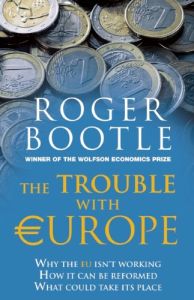Join getAbstract to access the summary!

Join getAbstract to access the summary!
Roger Bootle
The Trouble with Europe
Why the EU Isn't Working - How it Can Be Reformed - What Could Take Its Place
Nicholas Brealey Publishing, 2014
What's inside?
According to economist Roger Bootle, the European Union cannot survive in its current form.
Recommendation
Even before the Brexit vote, commentators wondered whether the European Union would last and whether it was a good idea in the first place. Economist Roger Bootle offers compelling arguments as to why both answers should be no. The power of his narrative derives from the presentation of his thesis – he offers a bitter pill but in a form that readers can swallow. He avoids jargon and brings clarity to complex economics. Some crucial events – most notably the UK’s June 2016 vote to leave the EU – have come to pass since Bootle wrote this analysis. While always politically neutral, getAbstract finds that this overview remains interesting for students, educators, entrepreneurs, policy makers and business leaders who seek answers about Europe’s uncertain economic future.
Summary
About the Author
Economists Roger Bootle is the author of The Death of Inflation, Money for Nothing and The Trouble with Markets. He founded and heads Capital Economics, a research firm.




















Comment on this summary